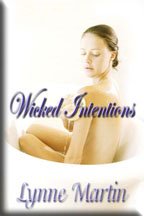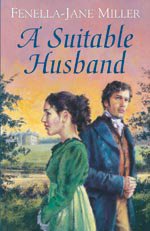We're delighted to welcome Janet Woods to the blog for our March guest slot. Janet has written a variety of popular historical romances in a range of historical periods. Here she talks about her work.

Janet says:
I’ve just finished writing my 22nd book. I won’t go into a long spiel about who has released which books of mine. Generally, I’ve been published in electronic form, hardcover and paperback, with spin-offs into large print and audio books, mostly in historical romance and saga. My favourite period for writing romance is Georgian. For saga, Victorian. Each era has it’s own charm, for me.
My first published historical book “Daughter of Darkness,” won the 2002 romantic mainstream book of the year award, here in Australia. Obviously the eight or more rewrites I did on it, paid off! It was certainly a learning process, as is each book I write. Now, I don’t need so many edits, but some books are certainly easier to write than others.I’m British by birth, but have lived in Australia for many years, having migrated with my husband and children as £10 poms. Now I have dual nationality.
I’m paying one of my four- yearly visits to the UK next month, where I will catch up with my 98 year old mother, who was one of eleven children. I love to listen to the stories she tells of her youth in West Hartlepool, where, as a child, she sold fish door to door for her father, who was a fisherman. When she was fourteen she became a maid in London. Most of her wage was sent back home to help raise her siblings, since there was no welfare system then. In her late twenties, she met my father who was a widower, and moved to Dorset, where she raised a family of five, mostly through the war years. I sometimes wonder how today’s youth would cope with such a hard life as my mother did. Or indeed, how I would have coped myself.

Reminiscences such as hers are invaluable, since they're first hand, and are the the stuff sagas are made of. I’d like to tell you about two of my latest sagas, which are published by Simon & Schuster in Pocket Books. Most people associate regional saga with books set in the North of England. Mine are set in the South of England. Dorset, to be specific. That’s where I was born and raised and I still have the dialect to prove it!
THE STONECUTTER’S DAUGHTER was released in 2005. Its sequel, WHERE SEAGULLS SOAR, which is already out in library hardcover, will be released in paperback in May 06. The setting of this duo of books is the Isle of Portland. Research uncovered the island’s fascinating past, and I thoroughly enjoyed the process.

I often used a book written by Dorset local historian Stuart Morris to give the setting authenticity, a gift from my eldest sister. My brother used to live in Portland a few years back, so I had a small advantage of having lived in his house in Fortuneswell for three months when he worked overseas. That gave me first hand knowledge of what it was like to live in Portland, and instilled in me a need to probe deeper. The history of the place is so varied and fascinating that it’s totally impossible to put it all into a work of fiction.
Learning from my readers letters that little details of historical interest are appreciated, and emotional depth is of paramount importance, I always aim to get both into my writing. I’ve lost count of the letters that have stated my books evoked such emotion in the reader that they bawled their eyes out from beginning to end. Oddly enough, I'm pleased I can make them cry! Many of those letters were from people with strong nostalgic ties to Dorset, who now live in places like New Zealand, Australia, Canada.
THE STONECUTTER’S DAUGHTER has also reviewed well. Following are some extracts from reviews.
“The unravelling of Woods’ young heroine’s antecedents makes for a highly appealing historical novel, one filled with surprises and interesting detail.” Patty Engelmann. Booklist. (Feb 05)
“This is a thoroughly researched, well-paced and enjoyable novel, conveying Portland’s unique, sometimes sinister atmosphere.” Nancy Henshaw. Historical Novel Society Review. (Nov 06)
“THE STONECUTTER DAUGHTER is a beautiful, poignant story that brought tears to my eyes more than once. Janet Woods is a superbly gifted writer who knows how to tell a story like no other.” Kristal Gorman.
Romance Reader at Heart (Jan 06)
WHERE SEAGULLS SOAR has not yet been reviewed, but a reader’s letter tells me it’s just as exciting and adventurous as the first book - as it brings to a conclusion the story of Joanna Rose, a child rescued from a stormy sea and raised by a simple Portland stonecutter and his wife.I’m certainly looking forward to my visit to my home county next month.
Janet Woods.
Visit
Janet's website to find out more about her books.
 The trouble is, they all have different things going for them, so I decided to give them points for fantasy lover (FL) good husband material (GHM) family man (FM) fun and games (FG) and stability and security (SS). I’m not sure SS has a place in a fantasy hero, but it helped bump up the points for Freddie (from Heyer’s Cotillion) so I left it in. I also threw in a few villains to see how they fared. Here’s how they did:
The trouble is, they all have different things going for them, so I decided to give them points for fantasy lover (FL) good husband material (GHM) family man (FM) fun and games (FG) and stability and security (SS). I’m not sure SS has a place in a fantasy hero, but it helped bump up the points for Freddie (from Heyer’s Cotillion) so I left it in. I also threw in a few villains to see how they fared. Here’s how they did:























